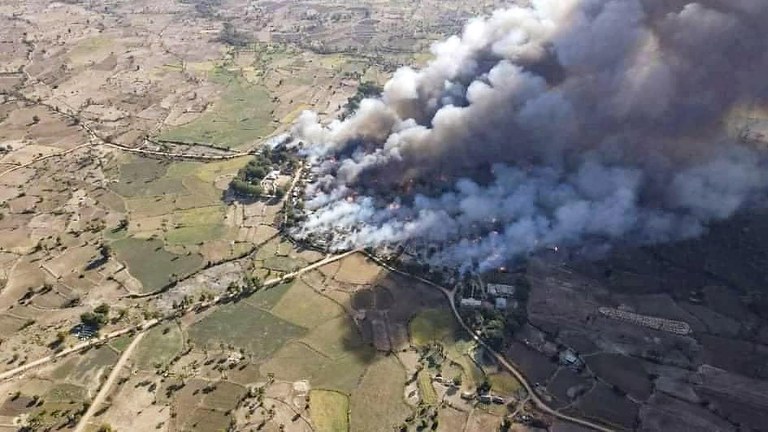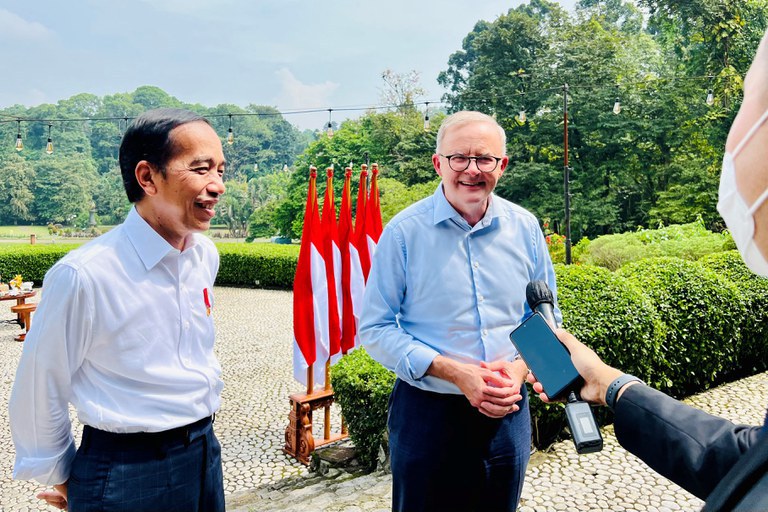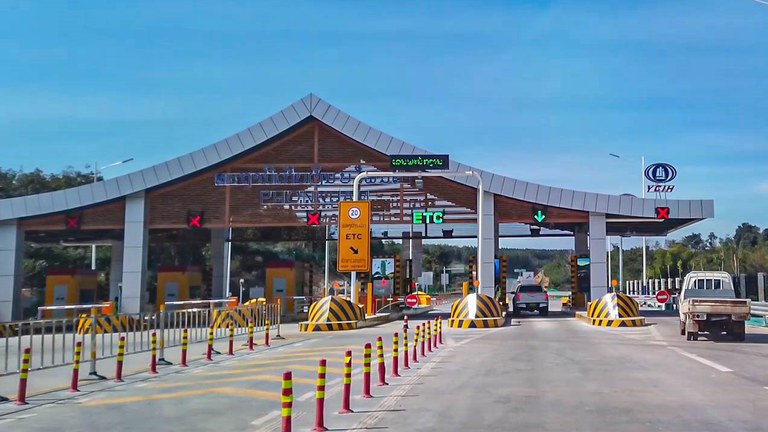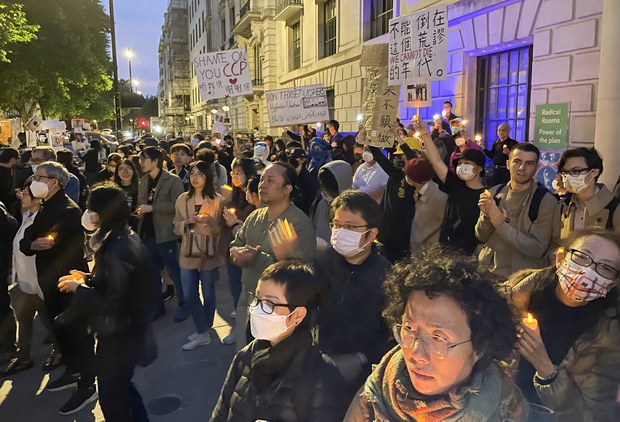Vietnam’s religious groups face state persecution, church leaders say
Church leaders in Vietnam say freedom to practice their religion, enshrined in the Constitution, is being undermined by the 2016 Law on Belief-Religion. Their comments support U.S. claims that the law allows the government to tighten control over religious activities. The U.S. State Department’s annual report on International Religious Freedom 2021, released last week, included Vietnam on a list of countries where religious practices are being curtailed by the state. The report, by the State Department’s Office of International Religious Freedom, found that: “Some religious leaders, particularly those representing groups that either did not request or receive official recognition or certificates of registration, reported various forms of government harassment, including physical assaults, detentions, prosecutions, monitoring, and denials of, or no response to, requests for registration and other permissions.” RFA interviewed several religious dignitaries, who agreed with the State Department’s findings. ‘“The current Law on Belief-Religion 2016 significantly controls religion,” said Catholic priest Dinh Huu Thoai of the Redemptorist Church, which has been operating in Vietnam since 1925. “Specifically, when registering or changing the place of religious activities we have trouble with the concept of ‘religious organization.’ In the regulations it requires ‘written approval of the religious organization,’ which is required by law. The definition of religious organization varies from place to place.” There are almost 7 million Catholics in Vietnam, according to Union of Catholic Asia News, making up 6.6 percent of the population. Even so, Father Dinh said the Catholic Church of Vietnam is still not considered a religious group in some parts of the country. “Some places consider parishes to be religious organizations or at least ‘affiliated religious organizations.’ They consider the registration or change of places of concentrated religious activities under the jurisdiction of the parish priest. And, if they are rigid considering only the diocese as a religious organization, they ask for the bishop’s text even if he is at the bishop’s house, not in the locality.” Unregistered religious groups ‘persecuted’ Unregistered religious groups find it even harder to navigate the religious law, Father Dinh said. “For example, the Unified Buddhist Church of Vietnam, Pure Hoa Hao Buddhism, Cao Dai Chan Truyen or Protestant groups that do not accept government intervention, are persecuted in all their religious activities.” The U.S. State Department report also mentioned the Vietnamese government’s refusal to return hospitals, clinics and schools that local authorities took from the Catholic Church many years ago. When asked about this, Father Dinh said: “Properties of the Catholic Church and [other] religious orders in Vietnam have been confiscated, appropriated, borrowed by the Vietnamese communist government; borrowed but not returned. Hundreds of facilities including monasteries, schools, hospitals, orphanages, etcetera from 1954 in the North and from 1975 in the South. The owners of these establishments repeatedly demand their return in accordance with fair and civilized law, but the number of establishments returned is very small.” “There is a paradox going on today,” Father Dinh said. “The authorities give themselves the right to grant land to religious institutions, even though that land was bought by the religions themselves a long time ago, but they have to carry out procedures to return the right to use that land.” “Why doesn’t the state use its rights to give the requisitioned religious facilities back to the owner rather than letting this problem drag on without knowing when it will be settled?” Banned from traveling or meeting overseas visitors The Redemptorist priest said the U.S. State Department report is lacking in that it omits to mention the issue of freedom of movement for many religious leaders. “Some religious dignitaries, including myself, are arbitrarily banned from leaving the country. These dignitaries are not protected by the law but are arbitrarily banned by the police from leaving for an indefinite period.” “I myself have been banned from leaving the country since 2010 until now, which is almost 12 years, without any sign of them returning my passport along with my freedom of movement,” Father Dinh said. Hua Phi, a high-ranking member of the independent religious group Cao Dai Chan Truyen, said his passport was confiscated in 2014 and is yet to be reissued, making it impossible for him to go abroad to attend a religious freedom conference in Southeast Asia. Hua said all independent religious groups are restricted by the Vietnamese government in terms of their right to practice religion freely, with the government requiring groups to register in order to do so. He said even though many groups have a long history the government still makes it difficult for them to practice their religion. Many religious organizations and followers are persecuted during religious holidays, according to Hua. He said local police keep a close eye on his movements during Cao Dai religious events, making him unable to travel to some parts of the country to practice his religion. Hua said many dignitaries of the Interfaith Council of Vietnam, himself included, have been prevented from contacting foreign diplomatic missions when they come to learn about religious freedom in the region. The U.S. State Department report states that representatives of the U.S. Embassy in Hanoi and the Consulate General in Ho Chi Minh City regularly raise concerns about religious freedom in Vietnam with local government officials and the Communist Party of Vietnam. Father Dinh called on the international community and governments of ‘civilized countries’ to use economic leverage to put pressure on Hanoi to respect religious freedom. RFA emailed Vietnam’s Ministry of Foreign Affairs and the Vietnam Government Committee for Religious Affairs with a request for comment on the U.S. report but received no response.







